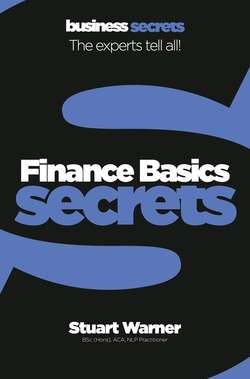Читать книгу Finance Basics - Stuart Warner - Страница 6
1.1 Know the different business entities
ОглавлениеA useful starting point to understanding business finance is to appreciate the different ways of trading. There are three main categories: sole traders, partnerships and limited companies. Each offers advantages and disadvantages in relation to legal issues, taxation and the personal liability of its owners.
1 Sole traders. A sole trader or proprietorship is a business with 1 one owner, who has unlimited personal liability. If the business becomes insolvent, the proprietor is personally liable for any unpaid debts. Examples can include shopkeepers, tradesmen (e.g. electricians), hairdressers and florists.
2 Partnerships. A partnership is a business with multiple owners, who share profits or losses. The partners can share unlimited personal liability or can take limited liability status. Examples tend to include doctors, dentists, lawyers and accountants.
“A friendship founded on business is better than a business founded on friendship” John D. Rockefeller, industrialist
3 Limited companies. A limited company is a business incorporated by law. Its owners are ‘shareholders’ who have the benefit of limited liability. If the business becomes insolvent the shareholders are only liable for the amount they invested in the company. Limited liability is a key advantage of turning a business into a limited company and can help to attract potential investors. In practice, however, banks may require personal guarantees from shareholders of small owner-managed businesses for loans or overdrafts. There is also an increased administrative and financial burden, in comparison to sole traders.
A limited company can be ‘private’ or ‘public’. Most companies, especially small ones, are private and are owned by a small number of shareholders. In the UK, private limited company names end with the suffix ‘Limited’ or ‘Ltd’. The directors of a private limited company are also likely to be the majority shareholders.
Public companies are usually much larger than private compa-companies. Their shares can be sold and purchased on a public stock exchange. In the UK public company names end with the suffix ‘Public Limited Company’ – or ‘PLC’.
This book will be useful to all entities and in particular limited companies which experience the most regulation.
Limited liability is a key advantage for limited companies.
